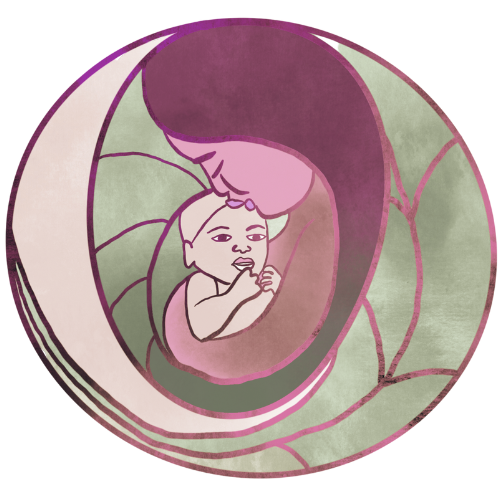How to Find a Midwife: A Comprehensive Guide for Expecting Mothers
Introduction to How to Find a Midwife
As you begin this sacred journey of bringing new life into the world, finding the right midwife to walk beside you is one of the most important decisions you'll make. Let’s take a houghtful look at how to find a midwife who aligns with your needs and values.
Understanding Midwifery Practice
Midwifery practice is an age-old tradition, rooted in the wisdom of women caring for women. Midwives are trained healthcare professionals specializing in pregnancy and birth, offering a blend of medical knowledge and nurturing support. You may encounter different types of midwives, such as certified nurse midwives (CNMs) who are recognized by the American College of Nurse Midwives, or direct-entry midwives who bring various paths of training and experience to their practice.
Key Factors to Consider
When seeking the right midwife, consider these vital elements:
Experience and Credentials: Look for midwives certified by reputable bodies like the American College of Nurse Midwives. Their experience and training will provide a foundation of trust.
Personal Compatibility: This journey is deeply personal. It's crucial to feel a strong, comfortable connection with your midwife. They will be a significant presence during this transformative time.
Availability and Accessibility: Ensure your midwife is available around your due date and that their location suits your needs, whether for a home birth or a birth center setting.
Where to Start Your Search
Now that you know what to look for, let’s explore where to begin:
Online Resources: Midwifery practice websites and directories, such as those provided by the College of Nurse Midwives, offer comprehensive details about services and practitioners.
Local Recommendations: Seek out stories and suggestions from friends, family, and healthcare providers. Personal experiences often provide invaluable insights.
Community Networks: Engage with local parenting groups and forums. These communities are rich with firsthand recommendations and reviews.
Questions to Ask Potential Midwives
When you’ve narrowed down your choices, it’s time to connect and ask the questions that matter:
What are your credentials and how extensive is your experience?
Can you support my desired birth plan, whether it’s a home birth, birth center, or hospital birth?
How do you handle emergencies or unexpected situations?
These questions will help you find a midwife whose approach resonates with your own.
Conclusion
Choosing the right midwife is a journey within your greater journey of motherhood. Take your time, trust in the wisdom of your heart, and know that the right midwife will provide a calm, nurturing presence throughout your pregnancy and birth. Embrace this sacred path with confidence and peace, knowing you are supported every step of the way.
Frequently Asked Questions
At What Point Should I Find a Midwife?
Ideally, you should begin your search for a midwife as early as possible in your pregnancy, preferably during the first trimester. Early engagement allows ample time for building a trusting relationship and ensuring comprehensive prenatal care.
How Do You Get a Midwife When Pregnant?
Starting your search can feel overwhelming, but these steps can guide you:
Online Resources: Explore midwifery practice websites and directories such as those from the American College of Nurse Midwives.
Local Recommendations: Seek advice from friends, family, and healthcare providers. Personal experiences provide valuable insights.
Community Networks: Join local parenting groups and forums for firsthand recommendations and reviews.
How to Find a Local Midwife
Finding a local midwife can be simplified by using the following resources:
College of Nurse Midwives Directory: A comprehensive directory of certified nurse midwives.
Local Health Departments: They often have lists of licensed midwives in your area.
Birth Centers: Many birth centers have midwives on staff and can provide referrals.
What Are the Three Types of Midwives?
Understanding the different types of midwives can help you make an informed decision:
Certified Nurse Midwife (CNM): A CNM is a registered nurse with additional midwifery education and certification from the American College of Nurse Midwives.
Certified Midwife (CM): A CM has a similar level of education as a CNM but does not hold a nursing degree.
Certified Professional Midwife (CPM): A CPM is trained through various pathways and certified by the North American Registry of Midwives, often focusing on out-of-hospital births.
What Is a Midwife vs. Doula?
A midwife and a doula play different but complementary roles in pregnancy and birth:
Midwife: Provides medical care throughout pregnancy, labor, and postpartum. They can perform clinical tasks like prenatal exams, deliveries, and postpartum check-ups.
Doula: Offers emotional, physical, and informational support but does not perform medical tasks. Doulas support the mother before, during, and after birth, ensuring a positive birth experience.
How Do You Pick a Midwife?
Selecting the right midwife involves asking essential questions and considering your personal comfort:
Credentials and Experience: Verify their certification and ask about their experience with births similar to your plan.
Philosophy of Care: Ensure their approach aligns with your birth preferences, whether you plan for a home birth, birth center, or hospital birth.
Personal Connection: Trust your instincts. The right midwife will make you feel heard, respected, and comfortable.
About the Author, Tori T.
Tori is a Reiki Master, yogi, and healer, certified in sound, color, and crystal therapies. With a passion for holistic wellness, she combines ancient wisdom with modern practices to guide individuals on their journey to balance and harmony. Through her work, Tori aims to inspire and empower others to achieve their highest potential.

